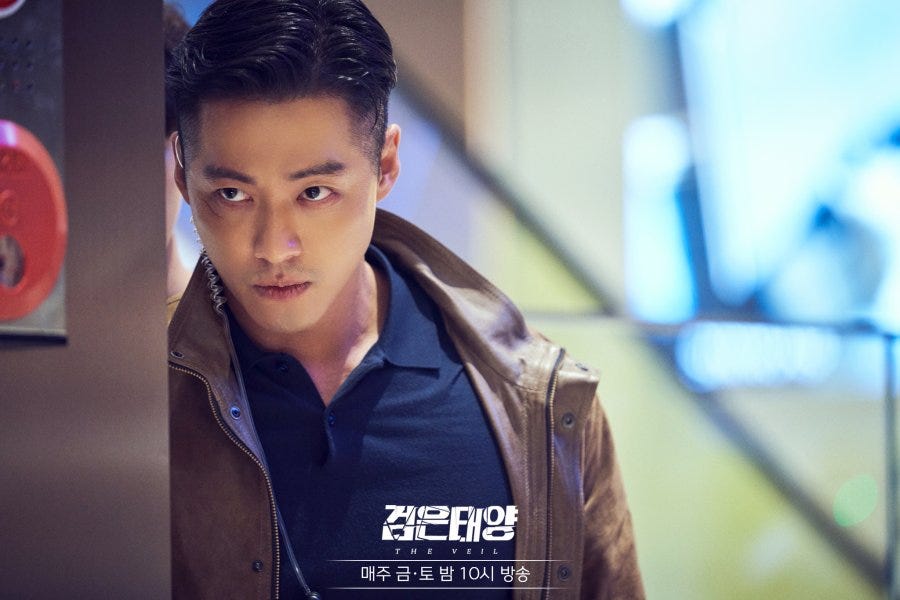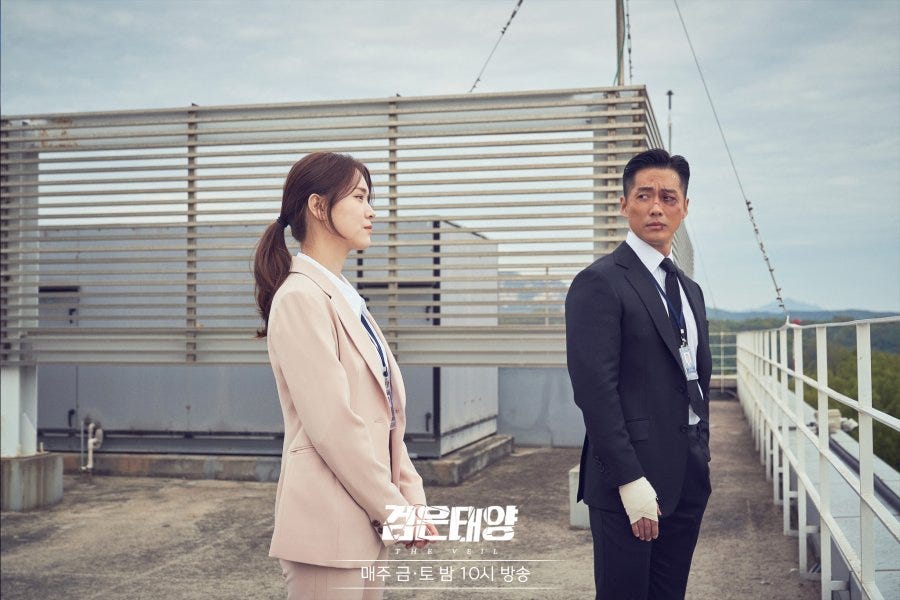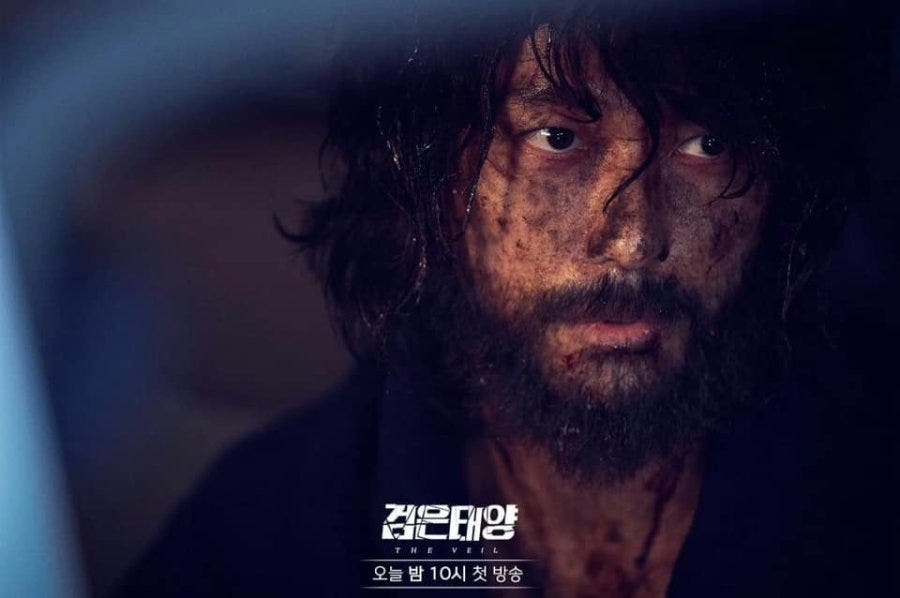The Veil (2021) Halfway Ramblings
Minor spoilers ahead…
One of my favourite things about K dramas is its insightful though sometimes theatrical portrayals of politicians and high level bureaucrats. While it might be amusing think of politicians or apparats as actors strutting on a stage of their own creation there’s a serious point to be made here about role-playing for political approval and survival. When I watch politicians front cameras (especially the past 18 months) and listen to the sophistry that’s being deployed I often wonder what it is that they’re not saying. What is it exactly that they’re hiding from the public and why is it that they’re saying what they’re saying but not something else? You see my conundrum?
That’s the same sort of sensation that I get when I’m watching The Veil. Although I was raised on a steady diet of action flicks/telly in my impressionable years and indulge in the guilty pleasure of a good fight scene as much as the next person, it’s not the reason why I’m a fan of this drama. Namgoong Min is reliably good value undoubtedly but ultimately it is the seemingly convoluted plot that keeps everyone on tenterhooks. The question keeps coming up… who can he/we trust? Even the characters routinely parrot this sentiment of foreboding and it has quickly turned into the show’s mantra: Don’t trust anyone.
Life is plenty hard for a man who hasn’t got all of his memories particularly the crucial ones from the past year. Because of this, Han Ji-hyuk is beset with terrible headaches — both literally and the mysterious ones that come equipped with weapons. Repeatedly he’s been told by his recruiter-mentor-handler (Kim Jong-tae) that he’s a clear and present danger to himself and others except that all kinds of people are trying to capture and kill him. Far more dangerous than Ji-hyuk whose street creds as a trained killer are never in doubt, are the high level officials that make up the management of the National Intelligence Service — the country’s premiere spy agency. The accountability structure of the organization seems to be in shambles while the various departments are actively at odds with one another carrying out individual agendas that don’t reflect their brief or the wider interests of the NIS. You know the ones I mean: cover-ups, misuse of surveillance tech, deleting crucial information and making highly questionable calls. On top of that, it is becoming increasingly clear that there are serious mental health issues associated with working in the field that are being disregarded or swept under the carpet. It isn’t just Ji-hyuk who seems to be losing his marbles but lately we find out that the grumpy Soo-yeon (Park Ha-sun) and a rogue agent Chang Chun-woo (played by Jung Moon-sung last seen in Hospital Playlist) are also suffering mental health issues. That seems to be an important thread in the show which bears highlighting at this point because it is bound to have serious ramifications down the garden path.
As if all that isn’t bad enough, there’s a traitor within the organization working to undermine it.
In such a low trust, low morale environment it’s not surprising then that terrible things are happening and people are dying. No one speaks plainly — it’s all a competition to see who can be the most cryptic. Just before anyone can spill the beans, an untimely phone call or bullet gets in the way. Somebody get to the point straight away please!
Who can Ji-hyuk trust? Even his ingenue partner has her own agenda but they seem to have common goals. Can we trust Ji-hyuk? He erased his own memories after all. It’s still not clear why he took that course of action. Even on a good day his headspace seems to be a morass of jumbled fragments of scenarios which may or may not have occurred. So his perspective which is our primary lens can’t be that reliable but is anybody’s for that matter? It naturally follows that the audience is compelled to maintain a high degree of objectivity.
The fragmented self that Ji-hyuk carts around isn’t just about identity but speaks largely to motives here. His instability not only raises questions about his competence as a field agent (or trustworthiness for that matter) but also his place in the NIS. Why is Han Ji-hyuk so adamant on finding the mole? At all costs. Does he care about the institution itself or is this about the people who have died as a result of the machinations of the hidden hand? Or is it self-interest that’s driving this dogged pursuit of the truth? No doubt Ji-hyuk is an inscrutable beast who thinks he’s playing a high-stakes poker game with an assortment of participants who are invested in the outcomes of his intervention in this life and death game. The show itself suggests that his actions rather than challenging the darker forces could in all probability be playing into their hands.
While red-herrings abound, the thankless task of unearthing the truth is left to an unreliable point of view. Han Ji-hyuk, the man, living in a barely furnished apartment is as much a mystery as the one he’s trying to solve. Whether his tendency to go off the books comes from a place of anti-authoritarian recalcitrance or of a barely concealed impulse for violence is a matter for ongoing debate.






